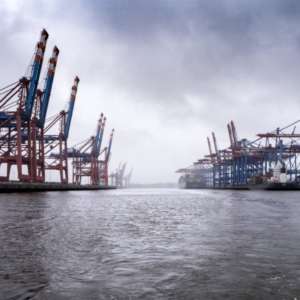As of this writing, the United States is still in the midst of the longest government shutdown in national history (Update: on January 25th the shutdown was put on hold for three weeks pending congressional approval of funding for a border wall). Of course, given the erratic state of our current political moment, the partial shutdown could end at any time, or it could drag on for weeks to come. Regardless of how much longer it lasts, the shutdown’s consequences for the global economy are likely to linger even once federal programs are funded and federal employees go back to work. And while the supply chain has thus far avoided catastrophe, the uncertainty created by this state of affairs is rattling an economy that is already nervous over trade wars and the wild swings of the stock market.
For the first few weeks, the shutdown’s impact on logistics and supply chain management was an inconvenience rather than a full-blown crisis. However, after a month of the political stalemate, cracks are beginning to show. Most imports and exports have continued to pass through the border without significant delays, since customs officials are still on the job and being paid, but certain specialized shippers have found their cargo stuck in bureaucratic limbo. The Washington Post reports that high-tech commercial and military shipments that require export licenses are stalled, and firms that have been able to ship their products, or even to determine which products require the licences. “The process has now ground to a halt,” says one trade attorney whose clients are left in the lurch. “And once it reopens, there’ll be a big backlog that will take a month or more to resolve.” The American Association of Port Authorities (AAPA) is also complaining that ports are unable to be reimbursed for federal grants to cover major expenses, including repair, infrastructure, and security. JOC describes a tugboat company that is understaffed and unable to approve new hires because “no one is available in Washington to process the necessary credentials to be a mariner.”
Meanwhile, air freight is also on shaky ground with TSA agents calling in sick and air traffic controllers working without pay. Miami International Airport has closed terminals to account for the security shortfalls, and more airports are warning that they may have to follow suit. Logistics professional Jon Slangerup was quoted in The Loadstar acknowledging that as of now, “We have not seen any meaningful delays or disruptions in the ability to move and clear freight,” but “long term, it is going to fracture the infrastructure for both ocean and air, regulatory and clearance.”
Even as goods continue to move through the supply chain, the ripple effects of the shutdown are beginning to shake the foundations of the American economy. For some business owners and citizens, the effect is catastrophic. The Small Business Association stopped issuing loans on December 22, torpedoing many business’ planned expansions. Companies that planned to go public, or hoped to have their mergers approved cannot do so, because most of the SEC’s employees have been furloughed. Cities with large numbers of federal workers are feeling the pinch, and states are delaying contracts for new infrastructure projects. And of course, the nation’s most vulnerable are at the greatest risk. The last food stamp payments went out January 20th and payments to federally subsidized low-income housing are grinding to a halt, raising the frightening specter of mass evictions and hunger.
These fears cut to the heart of consumer confidence, which is the driver behind American economic growth. According to the University of Michigan’s consumer sentiment index, perception of the economy’s strength is at its lowest since Donald Trump was elected president. Likewise, the International Monetary Fund slashed its growth predictions over concerns about the shutdown and the trade war.
As the partial shutdown grinds on, paperwork piles up, construction projects are delayed, and more businesses begin to feel the effects of D.C.’s gridlock. In the end, it may fall to the business community to use its clout to demand an end to political gamesmanship that threatens America’s prosperity, safety, and global position.
Red Arrow Logistics has the scale and scope to meet the budget and schedule requirements of the largest and smallest companies alike. If we can be of assistance, please email me at liz.lasater@redarrowlogistics.com or give us a call 425-747-7914



